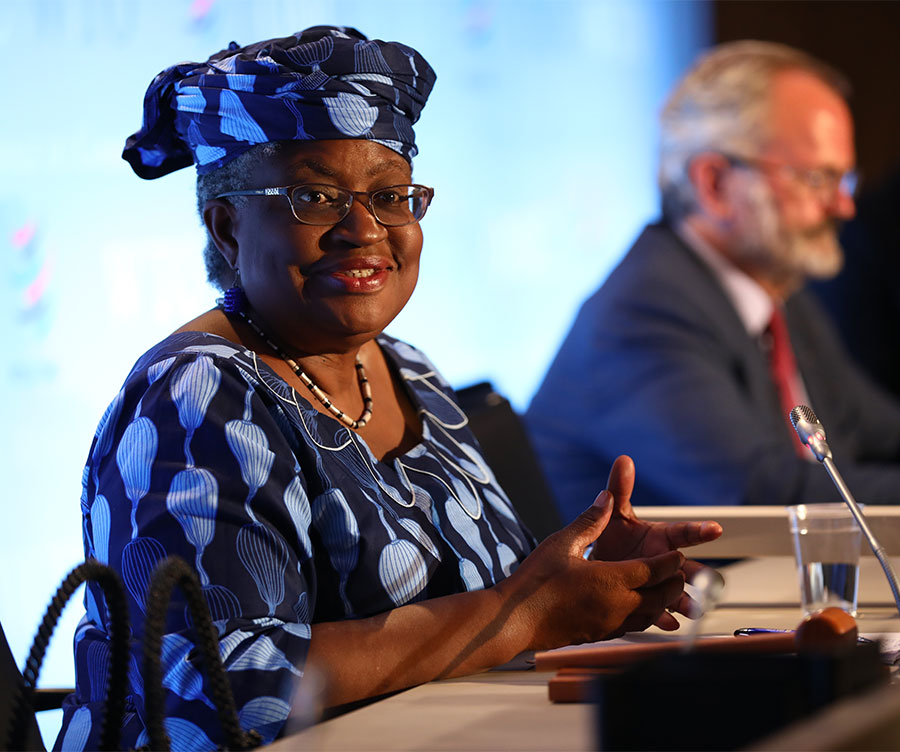The head of the World Trade Organization (WTO) has called on multilateral development banks to marshal their forces to boost access to trade finance in low-income regions.
Heads of development banks, which provide government-backed finance, met in Morocco last week in conjunction with the annual general meeting of the World Bank. The conference included a discussion on trade finance by senior bank representatives.
WTO director general Ngozi Okonjo-Iweala told the summit that recent studies by the organisation and the International Finance Corporation suggest that financing by development banks could help small and medium-sized businesses overcome acute trade finance shortages in some parts of the world.
The global gap between demand and supply of trade finance was estimated by the Asian Development Bank last month to be US$2.5tn. But the WTO believes the global headline figure masks much bigger financing shortfalls in regions such as West Africa and the Mekong.
“Only up to 25% of trade is supported by trade finance in these regions, compared to 60-80% in advanced economies,” Okonjo-Iweala told the summit, according to remarks published by the WTO.
Lifting the volume of trade supported by financing from 25% to 40%, she added, “would increase annual trade flows by an average of 8%, reaching 80% in 10 years”.
Addressing the gathered representatives from development banks, she said: “Collectively, you represent a significant counter-cyclical force accounting for US$40bn in trade finance.”
Okonjo-Iweala also “underscored the urgent need to improve the availability of supply chain finance”, according to the WTO, and nominated the lack of supply as a particular hindrance for “lower-tier” and local producers.
The WTO and IFC study on trade finance in four West African nations – Côte d’Ivoire, Ghana, Nigeria and Senegal – last year found that almost a quarter of firms requesting trade finance were rejected.
It also found that trade finance costs in these countries are much steeper than in developed markets. A letter of credit in one of the four nations costs between 2% and 4% of transaction value, compared to a global emerging market average of 2% and a typical cost in advanced economies of less than 1% of the transaction value.
Cheaper and more widely available trade finance in the West African economies would boost annual goods trade by 8% annually, the study found. A second analysis of the trade finance market in Cambodia, Laos and Vietnam will be published in mid-December.
A WTO spokesperson tells GTR the aim of the studies is to identify gaps that can potentially be filled by credit from multilateral development banks.
Many development banks are already major providers of trade finance in developing economies, typically through facilities granted to commercial banks in member countries, who in turn provide trade lending to local businesses.
IFC managing director Makhtar Diop, who spoke alongside Okonjo-Iweala, said his organisation – the financing arm of the World Bank – will continue to “scale up” its trade and supply chain finance offering.
“Trade financing has the same impact, and sometimes even more impact, than direct financial investment,” Diop said. “It is as noble as any type of investment because companies in low-income countries need working capital and access to funds.”
The WTO previously had an informal expert working group on trade finance that advised the secretariat on the market, but it has not met since 2020.
A WTO spokesperson tells GTR that the group was “advising a previous director general, for a period related to the global financial crisis”.
“The informal group is no longer gathered for various reasons – including reduced interest, but the WTO [director general] decided to partner with the IFC and other multilateral development banks, which have built a strong network in the area of trade finance.”
The 10 development bank heads meeting in Morocco lamented “painfully slow” progress toward meeting the sustainable development goals and said “a much scaled-up global effort is thus required to eradicate poverty, accelerate inclusive socioeconomic development, and tackle transboundary challenges”.
The final statement from the meeting did not mention trade finance, but pledged to boost their financing capacity, strengthen co-operation on co-financing and do more to mobilise private investments.







